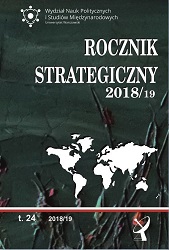
We kindly inform you that, as long as the subject affiliation of our 300.000+ articles is in progress, you might get unsufficient or no results on your third level or second level search. In this case, please broaden your search criteria.

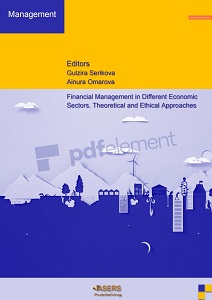
Every organization needs to be perceived as operating in an environment. Organizations are neither self-sufficient not self-contained. Rather they exchange resources with and dependent upon external environment. External environment can be defined as all the forces and conditions outside the organization that are relevant to its operation and influence the organization. Organizations take inputs (raw materials, money, labor and energy) from the external environment, transform them into products or services, and send back as output to the external environment. The other environment is internal which can be defined as all the forces and conditions within the organization that influences its behavior. Thus, environment can be broadly classified into internal environment, and external environment.
More...
Decision making is the mental process of choosing from a set of alternatives. Every decision-making process produces an outcome that might be an action, a recommendation, or an opinion. Since doing nothing or remaining neutral is usually among the set of options one chooses from, selecting that course is also making a decision. While they are related, problem analysis and decision making are distinct activities. Decisions are commonly focused on a problem or challenge. Decision makers must gather and consider data before making a choice. Problem analysis involves framing the issue by defining its boundaries, establishing criteria with which to select from alternatives, and developing conclusions based on available information. Analyzing a problem may not result in a decision, although the results are an important ingredient in all decision making.
More...
Financial management is aimed at managing the movement of financial resources and financial relations arising between business entities in the process of movement of financial resources. The question of how to skillfully manage these movements and relationships is the content of financial management. Financial management is the process of developing the goal of financial management and the impact on finances using the methods and levers of the financial mechanism to achieve the goal. Thus, financial management includes strategy and management tactics. In this case, strategy is understood as the general direction and method of using funds to achieve the goal. This method corresponds to a certain set of rules and restrictions for making decisions. The strategy allows you to concentrate on solution options that do not contradict the adopted strategy, discarding all other options. After achieving the goal, the strategy as a direction and means of achieving it ceases to exist. New goals set the task of developing a new strategy. Tactics are specific methods and techniques for achieving the goal in specific conditions. The objective of management tactics is to select the optimal solution and the most appropriate management methods and techniques in a given economic situation.
More...
The section considers the main directions of state regulation of the banking sector of Kazakhstan at the present stage. In the article had analyzed the main quantitative and qualitative parameters of the development of second-tier banks of Kazakhstan for the last several years. Weaknesses have been identified that reduce the stability of the banking sector, including a high level of overdue debt on bank loans, dollarization of deposit sources, low net worth of banks, increased banking risks, etc. State measures have been analyzed to support the financial stability of commercial banks. Also had systematized the reasons for the activation of integration processes in the banking sector. The necessity of improving the procedure of stress testing of Kazakhstan banks is grounded. Priority directions for ensuring the stability of Kazakhstan's banking sector for the future are identified.
More...
Today, an increasing number of enterprises, organizations, scientists, practitioners and simply curious people are interested in issues of corporate social responsibility (CSR), or, as it is called in another way, corporate responsibility, corporate ethics, corporate citizenship, sustainable development, responsible business and other. Since business plays a major role in improving the well-being of society, corporate social responsibility is a central concept in the management system. It positions the company both in terms of existing risks and in terms of the advantages of the opportunities provided to it, especially regarding their corporate reputation and the wide involvement of stakeholders - shareholders, employees, consumers, the community, suppliers, government, non-governmental organizations, international and others organizations with which the company is associated.
More...
Agriculture has a special place in the country’s economy, as it produces food and responds for economic security of the country. The changes in the conditions of continuously transforming Kazakstan's market economy demand from the leaders of agricultural organizations to implement new, innovative ways and approaches to technologies and mechanisms of financial management in the strategy of agriculture. This chapter deals with the concept of financial management; it proves the importance of developing new forms and possible methods of financial management; it states the reasons for lack of effective financial management in the agricultural enterprises; it also identifies a number of factors that affect the financial flows within agricultural enterprises; it briefly reviews the current situation in Kazakh agriculture; it specifies the main areas that should be solved by a system of effective financial management that all in all will formulate the directions and recommendations for improving the financial management of agricultural enterprises of Kazakhstan and, accordingly, increase the competitive advantages of the industry. To improve the effectiveness of the financial management of agricultural enterprises of Kazakhstan in general, as well as in the investment sphere of their activity is necessary to carry out a number of measures, namely: use of specific methods of financial management in determining the results of financial and economic activity of enterprises of the sector agribusiness.
More...

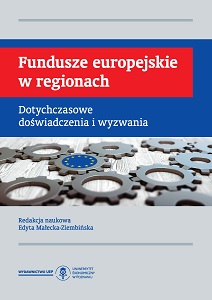
Projekty, programy czy polityka europejska podlegają ewaluacjom i kontroli. Kluczowe miary oceny dokonań (key performance indicators, KPI) jako instrument rachunkowości zarządczej są nośnikiem informacji zarządczej, która ma pomóc w rozwiązywaniu problemów i podejmowaniu decyzji również przez decydentów w projektach europejskich. W pracy zaprezentowano przegląd ścieżek badań prowadzonych w ostatnich latach w zakresie instrumentu, jakim są kluczowe miary oceny dokonań w projektach europejskich. Do przeglądu wykorzystano przede wszystkim bazy naukowe Web of Science oraz Scopus. W pracy zwrócono szczególną uwagę na obszary polityk europejskich, w których sklasyfikowano największą liczbę opublikowanych prac naukowych w wybranych bazach naukowych.
More...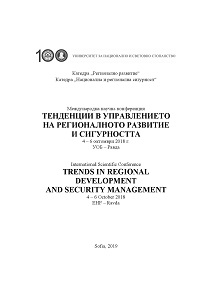
The public awareness regarding environmental concerns of waste is not sufficiently developed. We think, the fulfillment of this obligation is a subject of control on behalf of the specialists during the approval of the process it regional development. One of the priorities of the national waste management concerns measures to raise awareness of citizens in all fields of waste management through construction and management of landfills. We’ll get into trouble with organization of separation, temporary storage, collection and transportation of waste. Strengthening the adminis-trative capacity of the institutions responsible for waste management. Development of sustainable management systems for specific waste streams.
More...
The author through this research paper tries to find the answers what the actual problems of development and regional markets are. The author explains new tendencies in world economy, regional markets and states’ connections. The author explores the influence of new communication and information technologies on world development and new world order establishing. In this research the author uses different methods as description, prescription, analytical, induction and deduction.
More...
Transport operations between countries and the provision of adequate infrastructure to carry out these activities are made possible by the international transport corridors. Transport corridors are of great importance, especially for increasing trade between countries and cities along and around the corridor, it accelerates regional development and regional integration, due to the positive effects on the commodity market, the labor market and tourism. This report examines the transport infrastructure of the North Central Region and the European transport corridors passing through it. The use of Transport Corridor № 9 reveals an opportunity to accelerate economic development to the region and its integration. The importance of the chosen topic is justified by the role of transport and transport infrastructure for regional development and connectivity in a single European transport system. The aim, presented in the development is to offer opportunities for socio-economic and spatial development of the North Central Region, using the potential of transport corridor № 9 and its adjacent transport infrastructure. The following tasks were achieved: acquaintance with the current state of the transport system of the region; providing development guidelines, by creating download centers and building appropriate infrastructure. The comparative method is used to obtain the final result in the re-port. In the conclusion recommendations are made for modernization and improvement of the transport infra-structure, meeting the modern European requirements and needs.
More...
In this report the author wants to outline the current conditions of globalization of the economic development of entrepreneurship and enterprises. The management of the competitiveness of the enterprise is carried out in the conditions of high degree of uncertainty of the external environment and attenuation of signals from the competitive environment. This confronts the enterprise's com-petitiveness management system with significant difficulties related to its information provision with timely, sufficient, reliable and reliable information. Moreover, the high risk of unforeseen strategic events, which in turn require management decisions and management actions that go beyond those in the competitive strategy, leads to an objective need to build an effective monitoring and analysis system. the external environment.
More...
Summary In the current conditions of globalization of the economy, the development of entrepreneurship and enterprises faces a number of current problems and future challenges. Some of the main characteristics of the external environment of enterprises are its strong instability and high dynamism, the continuous increase of competition in the sectoral and / or regional markets, the extremely rapid development of information technologies, leading to major changes in the conditions of competition. Manufacturing technological innovation and efficient financial management are already proving insufficient to achieve, sustain and maximize sustainable competitive advantages. Companies are developing and implementing various innovative approaches and tools to enhance their operations, with the ultimate goal of increasing competitiveness.
More...
The territorial administrative reform initiated in 2014 by the Law 115/2014 "On administrative-territorial division units of local government in the Republic of Albania", changes the map of territorial division of Albania by establishing a two-tier governance system. This reform follows the trend of the most European nations, for the democratization of the countries through the consolidation and empower of the local governance. Significant changes happen to the first level of the local governance decreasing the number of local government units from 373 very fragmented communes and municipalities to just 61 larger municipalities.
More...
Free zones become places of foreign direct investment because they offer numerous benefits and the least cost in production, transport and distribution, free from the constraints of national laws. The purpose of the development of logistics centers in free zones is to create the basic infra-structure and at the same time create the conditions for the development of other production activities in favorable business conditions, as offered by the zone regime. Logistics, with its methodology, optimizes and organizes rational movement of cargo and related activities (information and service) and enables increasing the efficiency of these flows, reducing costs and satisfying users of free zones. The Logistics Center of the Free Zone Pirot, leaning against the new Pan-European Corridor X highway, is part of a network of intermodal terminals that will connect the logistics hubs of Bulgaria and Serbia to transport goods in international traffic as efficiently as possible.
More...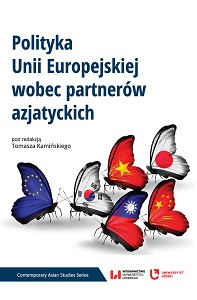
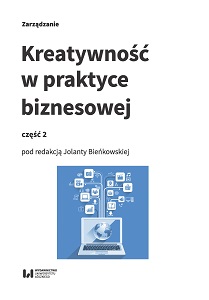
The chapter aims to show the possibility of developing universal competencies of students in the academic environment on the example of two radio projects: the implementation of a diploma thesis in the form of an audio reportage and the student program „Uniwersytet Łódzki na fali” presented on PR Lodz. Both initiatives are not obligatorily included in the curriculum of the „journalism and social communication” field of study. Participation in them is the result of a conscious decision of students who want to acquire new or develop their already existing journalistic skills. Based on the research conducted among the students, the author discusses their motivation to participate in projects, accompanying fears and ways to overcome them, but above all discusses many competencies that students have the chance to gain by engaging in the radio work.
More...
Nowadays, customer satisfaction and their personalized expectations are by far the biggest challenge for today's service companies, including the translation industry. This chapter discusses the basic role of transcreation and its place among the services provided by international translation agencies. Orientation for continuous development, striving to gain a competitive advantage in the dynamically changing environment of the organization. The chapter aims to pre-sent the possibility of using transcreation and its place in the current market situation in the translation industry and to show its practical application.
More...